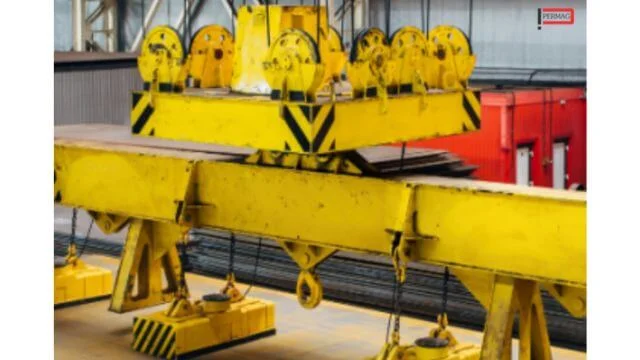The Role of Magnet Audits in Environmental Sustainability
When natural resources are managed with consideration for both present and future generations’ needs, this is called environmental sustainability. The goal of this method is to lessen human interference with the natural world by employing eco-friendly tools and techniques.
Magnetic equipment is one example of sustainable technology. Magnetic equipment, such as magnetic separators and magnetic lifters, can be used to improve efficiency, cut costs, and boost product quality.
Magnetic technology can be useful, but its deployment requires rigorous oversight to guarantee its efficacy and forestall environmental damage. Audits of magnetic apparatus are one method for controlling their deployment.
Let’s discuss how magnet audits of magnetic equipment might contribute to environmental preservation.
What is a magnet audit?
An audit of magnetic equipment involves checking and double-checking its operation and quality against predetermined benchmarks. The audit includes a check for damage or wear and tear, as well as a test of the equipment’s magnetic strength. It is crucial to conduct regular audits of magnetic equipment to guarantee optimal performance.
Magnet Audits and Environmental Sustainability
Industries as diverse as mining, recycling, and food processing all rely heavily on magnetic equipment. However, improper management of magnetic equipment use can have a detrimental effect on the natural world. For instance, contamination might occur if magnetic separators are not operating properly and filtering out unwanted materials from waste streams.
Audits of magnets are essential to guaranteeing that magnet-using machinery is operating at peak efficiency. Magnet audit help decrease waste and pollution by finding inefficient or broken magnets. By verifying that all machinery is functioning optimally, energy consumption can be lowered through magnet audits. If a magnetic lifter isn’t working properly, for instance, it may take more energy to lift the same amount of weight, which would increase both energy usage and GHG emissions.
Additionally, product quality can be enhanced through magnet audits. Magnetic separators, for instance, are used to get rid of metal impurities in the food processing business. Products of lower quality may result from the magnetic separator’s inability to effectively remove all impurities. Magnet audits aid with product quality and waste reduction by checking the efficiency of magnetic equipment.
Benefits of Magnet Audits:
There are several benefits of magnet audits for environmental sustainability, including:
Pollution Prevention
Magnet audits help to prevent pollution by ensuring that magnetic equipment is functioning correctly and effectively removing contaminants from waste streams.
Reduced energy consumption
Magnet audits can help reduce energy consumption by ensuring that magnetic equipment is functioning efficiently and does not require excess energy to operate.
Improved Product Quality
Magnet audits, which check to see if magnetic equipment is effectively removing pollutants, can improve product quality.
Reduced Waste
To further aid in waste reduction, magnet audits check for the proper operation of magnetic equipment and its ability to efficiently remove impurities from waste streams.
Cost Saving
Magnet audits can lead to cost savings by identifying any issues with the equipment before they become major problems, preventing costly repairs or replacement.
Compliance
Magnet audits are often required by regulatory bodies to ensure compliance with environmental regulations.
Conclusion
A magnet audit is essential for ensuring that magnet-using machinery is operating efficiently and sustainably. Auditing the use of magnetic equipment is crucial for businesses like mining, recycling, and food processing since it helps reduce pollution, energy consumption, product quality issues, waste, and costs.
Companies should make magnet audits a top priority as part of their environmental sustainability practices to verify that they are upholding the necessary requirements and minimizing their negative effects on the environment.


